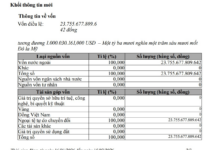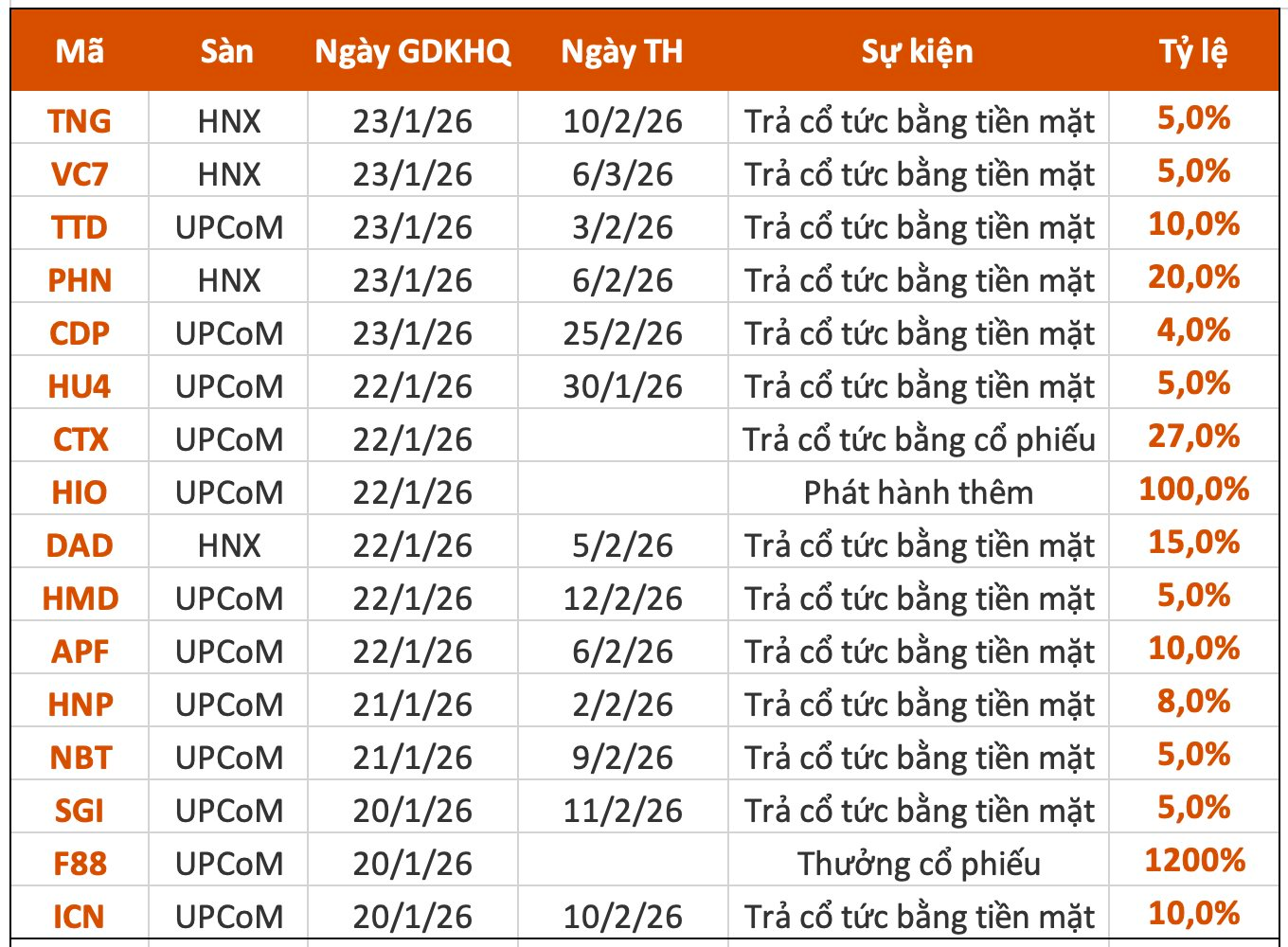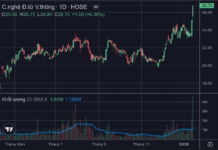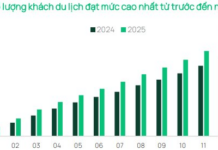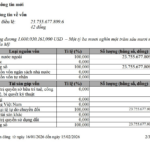Key issues addressed include: Exchange rate risk management for foreign investors; tax and fee policies for investment funds; borrowing mechanisms for open-ended funds; and derivative securities investments aimed at profit generation for funds.

Ms. Nguyễn Ngọc Anh – CEO of SSI Asset Management Company (SSIAM) spoke at the conference held on the morning of October 17, 2025.
|
According to Ms. Nguyễn Ngọc Anh, investing in Vietnam’s stock market and open-ended funds currently poses significant exchange rate risks for foreign investors, reducing net profits when converted into foreign currencies. Foreign investors lack tools to hedge against these risks. In 2024 alone, the USD/VND exchange rate increased by 4.3%, and it has risen by nearly 3.5% since the beginning of 2025.
Circular 02/2021/TT-NHNN issued by the State Bank of Vietnam allows credit institutions to engage in foreign exchange transactions, permitting them to sell forward foreign currency to non-resident foreign investors holding government bonds issued in Vietnamese Dong. However, apart from government bonds, foreign investors cannot use forward foreign exchange contracts to hedge risks associated with investments in Vietnam’s stock market through domestic credit institutions.
The CEO of SSIAM noted that the absence of exchange rate risk hedging tools forces foreign funds to adopt defensive strategies, shorten investment horizons, and increase profit requirements, diminishing the attractiveness of Vietnam’s stock market and open-ended funds compared to regional peers.
Therefore, SSIAM proposes that the State Bank of Vietnam introduce suitable exchange rate risk hedging tools for foreign investors, enabling them to confidently allocate long-term capital in Vietnam. This would stabilize capital flows, enhance market competitiveness, and support market upgrade efforts.
Regarding tax and fee policies, these are critical in encouraging investors to invest in funds, thereby expanding the capital market. The new draft Law on Personal Income Tax includes positive measures, such as exempting transfer taxes on fund certificates held for two years or more and reducing taxes on fund dividends by 50%. These incentives should be maintained and expanded to promote long-term capital inflows.
Previously, Circular 100/2004 stipulated that “Securities investment funds are not subject to corporate income tax.” This circular was repealed by Circular 103/2020. However, current tax regulations lack specific provisions reaffirming this, creating challenges for fund management companies overseeing securities investment funds. Therefore, it is recommended that corporate income tax regulations reinstate this provision to provide a clear framework for fund managers.
Tax regulations for foreign investors transferring shares in non-public companies differ between the Laws on Corporate Income Tax and Personal Income Tax. The Personal Income Tax Law does not distinguish between public and non-public company shares, imposing a 0.1% tax on the transfer value for individual foreign investors. In contrast, the Corporate Income Tax Law differentiates, taxing foreign institutional investors at 0.1% for public company shares but 20% on profits from non-public company shares.
Thus, SSIAM recommends harmonizing tax rates for foreign investors. Non-public company shares should be taxed similarly to public company shares, as both are equity instruments.
For voluntary supplementary pension funds—a vital tool for social security and long-term institutional investment—current tax incentives remain limited. Contributions by employers to these funds are not exempt from personal income tax, and existing exemptions are insufficient to encourage participation from businesses and employees.
SSIAM suggests that personal income tax regulations explicitly exempt contributions to supplementary pension funds by both employees and employers, with higher exemption thresholds. Additionally, a tax or fee mechanism for early withdrawals before retirement age should be introduced to encourage long-term savings and sustainable investment.
Regarding fund fees, a more flexible mechanism for open-ended funds is needed, allowing reasonable performance fees and using a portion of fees to support sales activities. This would expand the investor base and drive market growth.
Another critical issue is the borrowing mechanism for open-ended funds. Ms. Ngọc Anh highlighted that while current regulations permit borrowing, implementation challenges persist. A major obstacle is that only legal entities can borrow from banks, and open-ended funds lack legal personality, restricting their access to credit. This limits their liquidity management and operational flexibility.
During market downturns, investor redemptions create selling pressure. Funds cannot borrow to meet these demands, forcing them to sell assets, which impacts market dynamics.
To address this, SSIAM proposes amending banking regulations to allow open-ended funds to borrow directly or through their management companies, enhancing liquidity management and investor redemption capabilities.
Finally, SSIAM advocates for allowing funds to invest in derivatives for profit. Currently, Vietnamese open-ended funds can only use derivatives for hedging, not profit generation. In contrast, international markets permit funds to employ derivatives for value creation, provided they adhere to strict risk management, transparency, and regulatory oversight.
Therefore, SSIAM recommends enabling open-ended funds to use derivatives for profit within controlled risk limits, ensuring full reporting and compliance with international standards. This would enhance investment efficiency and diversify fund products.
– 15:24 17/10/2025












